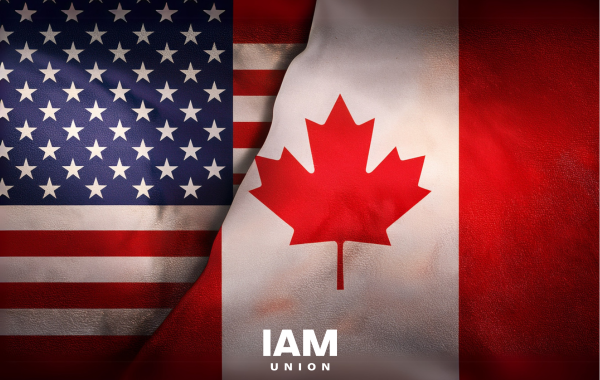Tag Archives: Union
IAM Canada – Quebec Machinists Council Hosts Shop Steward Training
IAM members of local 2309 from Samsic Unit and Air Transat, gathered at the District 140 offices to attend the shop steward training offered by the Quebec Machinists Council’s (QMC) education department.
On the front lines of union action, these stewards will ensure compliance with the collective agreement and the quality of work life for their fellow members.
Congratulations to each of them for their commitment and their dedication to upholding your rights at work. We also wish to thank our trainers, Stéphane Paré and Michel Richer, for their outstanding work.
Our participants were: André Guilbault, Charles Jean-Ronel, Dany Joubert, Eude Real Charles, Jules Raymond Kwebou, Leonidas Mylonas, and Rui Claro.
Knowledge transfer and learning the various labour relations practices are essential to ensuring effective representation of workers. That is why the QMC, in partnership with affiliated locals, has made it its mission to provide quality training to all IAM union representatives.
IAM Union – IAM Union Statement on U.S. House Vote to Reject Tariffs on Canada
WASHINGTON, Feb. 11, 2026 — Brian Bryant, International President of the IAM Union (International Association of Machinists and Aerospace Workers), and David Chartrand, IAM Canadian Territory General Vice-President, issued the following statement after the U.S. House of Representatives voted to reject President Trump’s tariffs on Canada:
“Today’s bipartisan vote shows that a majority of Congress understands what’s at stake for working families. Indiscriminate tariffs against allies are bad for both U.S. and Canadian workers. Our industries are connected, and any attack on our partnership only leads to job losses, higher prices, and economic instability across North America.
“These tariffs are already causing serious disruption to the deeply integrated U.S and Canadian aerospace and manufacturing sectors.
“We can’t stress this enough: Workers should not be pawns in this discussion. This vote sent a clear message that Congress stands with workers over short-sighted trade policies that drive up costs for working families and threaten jobs.
“The IAM will continue to speak out against any short-sighted trade war and fight for a comprehensive, long-term strategy that strengthens manufacturing and prioritizes the interests of North American workers.”
The IAM Union (International Association of Machinists and Aerospace Workers) is one of North America’s largest and most diverse industrial trade unions, representing approximately 600,000 active and retired members in the aerospace, defense, airlines, shipbuilding, railroad, transit, healthcare, automotive, and other industries across the United States and Canada.





